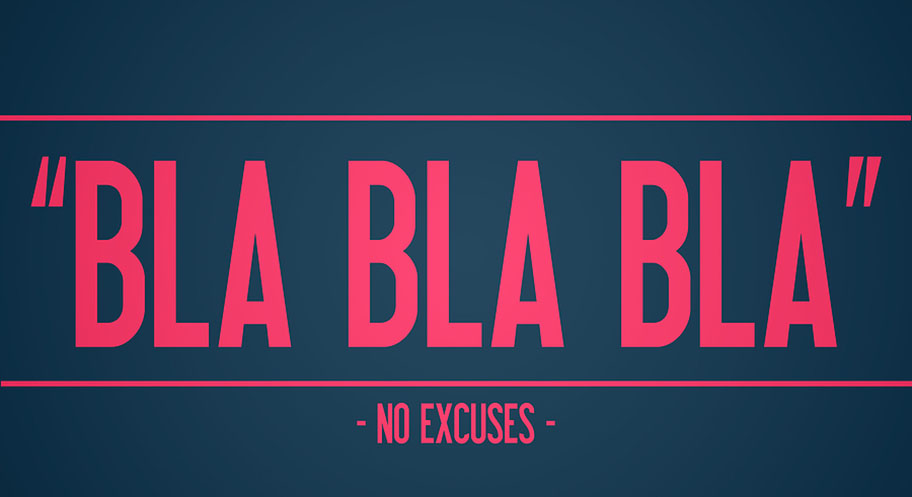Written by Sean McPheat | 

When I managed a team of salespeople it was always interesting to hold meetings with them when their sales targets hadn’t been met.
I often had to smile to myself when they were avoiding eye-contact, rubbing their hands together, breathing heavily, umming and erring as they tried to find specific reasons to back up their poor performance.
It’s natural for someone who hasn’t performed up to expectations to find excuses (or reasons, in their mind) for the situation. The defense mechanisms churn over and the salesperson will attempt to defuse any potential bad feedback.
Some even look at you as the sales manager for some sales team motivation ideas and try to deflect the blame on you as a weak sales manager.
Just for fun, here are the top excuses I hear salespeople make when they don’t make their sales goal, plus what they mean.
What they mean: “I haven’t the motivation to make my own leads so I’m going to blame the company for not giving me an easy life and laying great leads on a plate for me.”
What they mean: “I have lots of potential business out there, but those pesky customers aren’t making decisions and until they do, they’re missing out on what I can offer…”
What they mean: “If you would get me a PA, secretary, and admin assistant, I would have time to go out and get the business. Until then, don’t expect me to spend more than 9 hours a week actually selling”
What they mean: “I knew they were going on holiday, but I left it too late to help them progress towards making a decision, so it’s on hold for another couple of weeks. Don’t blame me!”
What they mean: “I saw the email, but (delete as applicable) ignored it/didn’t want to deal with it/it was 4pm so too late to deal with it/thought it was spam/I couldn’t be bothered”
What they mean: “I don’t have the organisational skills to be able to see what was important and what was urgent, and I don’t have the PA, secretary or admin assistant to help me out and I’m always expected to do a 75-hour week and I can’t fit in 12 calls a week and so I’m obviously too busy”
What they mean: “I know I could achieve these stretching targets if I work smarter, but it’s too much like hard work, so I’ll blame my manager for setting the targets too high. Don’t blame me!”
What they mean: “I’ve tried to contact them twice, but they haven’t replied to my messages and I don’t have any ideas how to make them really want my product so I’ll blame them, not me”
What they mean: “I don’t want to do the necessary work to help this prospect see what we could do for them, so it must be their fault that they didn’t simply ask me for my product.”
What they mean: “I don’t have the skills, talent, business acumen or competence to be able to sell my products so I’ll have to blame the marketing department for not making people make my phone ring day and night, begging me to sell them my stuff”
What they mean: “I haven’t worked out how my customers benefit from the better value my products offer, so I’ll blame the price as that’s easier than building the real reasons why prospects should choose me”
These aren’t all the excuses salespeople use, of course, but they have been used since Adam sold Eve the first apple. Check out our Sales Training solutions if you’d like some further information on how to improve your sales performance. And if you’re a sales leader we have a great Sales Management Training programme that will help you to get the best out of your people.
Check out our Sales Manager’s Guidebook for more tips on how to become a better sales leader.
Or take a look at our full portfolio of Sales Training Courses.
Happy selling!
Sean

Sean McPheat
Managing Director
MTD Sales Training
Updated on: 4 November, 2014
Related Articles

Search For More
